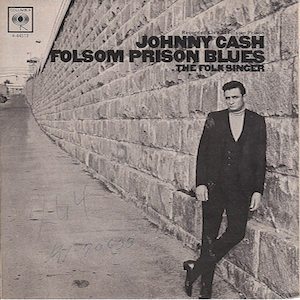
"Folsom Prison Blues" is a song written in 1953 and first recorded in 1955 by American singer-songwriter Johnny Cash. The song combines elements from two popular folk styles, the train song and the prison song, both of which Cash continued to use for the rest of his career. It was one of Cash's signature songs. It was the eleventh track on his debut album With His Hot and Blue Guitar and it was also included on All Aboard the Blue Train. A live version, recorded among inmates at Folsom State Prison itself, became a No. 1 hit on the country music charts in 1968. In June 2014, Rolling Stone ranked it No. 51 on its list of the 100 greatest country songs of all time.

At San Quentin is the 31st overall album by Johnny Cash, recorded live at San Quentin State Prison on February 24, 1969 and released on June 4 of that same year. The concert was filmed by Granada Television, produced and directed by Michael Darlow. The album was the second in Cash's conceptual series of live prison albums that also included At Folsom Prison (1968), På Österåker (1973), and A Concert Behind Prison Walls (1976).
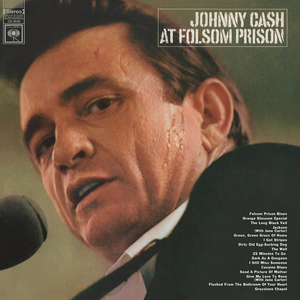
At Folsom Prison is a live album by Johnny Cash, released on Columbia Records in May 1968. After his 1955 song "Folsom Prison Blues", Cash had been interested in recording a performance at a prison. His idea was put on hold until 1967, when personnel changes at Columbia Records put Bob Johnston in charge of producing Cash's material. Cash had recently controlled his drug abuse problems, and was looking to turn his career around after several years of limited commercial success. Backed by June Carter, Carl Perkins and the Tennessee Three, Cash performed two shows at Folsom State Prison in California on January 13, 1968. The album consists of fifteen tracks from the first show and two tracks from the second.
Theodore Roosevelt "Hound Dog" Taylor was an American Chicago blues guitarist and singer.

Freddie King was an American blues guitarist and singer. He recorded several hits for Federal Records in the early 1960s. His soulful and powerful voice and distinctive guitar style inspired many musicians, particularly guitarists. He was inducted into the Rock and Roll Hall of Fame in 2012.

Aoxomoxoa is a 1969 album by the Grateful Dead. One of the first rock albums to be recorded using 16-track technology, fans and critics alike consider this era to be the band's experimental apex. The title is a meaningless palindrome, usually pronounced.

The Grateful Dead is the debut album of the Grateful Dead. It was released by Warner Bros. Records in March 1967. According to the biographies of both bassist Phil Lesh and drummer Bill Kreutzmann, the band released the album as San Francisco's Grateful Dead.

Blues for Allah is the eighth studio album by the Grateful Dead. It was recorded February 27 – May 7, 1975, and released September 1, 1975. It was the band's third album on their own Grateful Dead Records label and their third studio album in a row. Though it has not received RIAA certification as of 2020, Blues for Allah was the group's highest-charting album until 1987's In the Dark, reaching No. 12 during a thirteen-week stay on the Billboard Album Chart.

Wake of the Flood is the sixth studio album by rock band the Grateful Dead. Released October 15, 1973, it was the first album on the band's own Grateful Dead Records label. Their first studio album in nearly three years, it was also the first without founding member Ron "Pigpen" McKernan, who had recently died. His absence and keyboardist Keith Godchaux's penchants for bebop and modal jazz contributed to the band's musical evolution. Godchaux's wife, backing vocalist Donna Jean Godchaux, also joined the group and appears on the album.

Moby Grape is the 1967 debut album by rock band Moby Grape. Coming from the San Francisco scene, their reputation quickly grew to immense proportions, leading to a bidding war and a contract with Columbia Records. The album peaked at #24 on the Billboard 200 albums chart in September 1967.
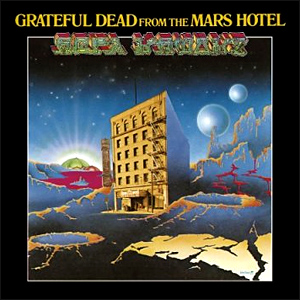
From the Mars Hotel is the seventh studio album by rock band the Grateful Dead. It was mainly recorded in April 1974, and originally released June 27, 1974. It was the second album by the band on their own Grateful Dead Records label. From the Mars Hotel came less than one year after their previous album, Wake of the Flood, and was the last before the band's then-indefinite hiatus from live touring, begun in October 1974.

What a Long Strange Trip It's Been is the second compilation album by the Grateful Dead. It was released August 18, 1976 by Warner Bros. Records, three years after the Skeletons from the Closet compilation. Both albums are subtitled "The Best of the Grateful Dead". Unlike the previous compilation, What a Long Strange Trip It's Been is a double album.
Red Rockers were a musical band from New Orleans, Louisiana, active from 1979 to 1985. Originally formed as a hard-charging punk rock band, they changed their style to a smoother, more melodic sound and released two albums in the new wave vein of their record label, 415. They are best known for their 1983 hit single "China".
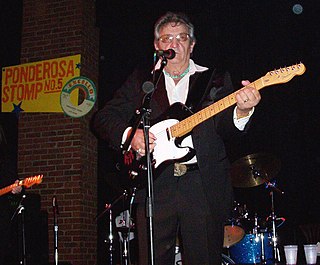
Robert "Bob" Wootton was an American guitarist. He joined Johnny Cash's backing band, the Tennessee Three, after original lead guitarist Luther Perkins died in a house fire. He remained Cash's guitarist for nearly thirty years.
Joy of Cooking was an American music ensemble formed in 1967, in Berkeley, California. Identified with the hippie culture, the band's music melded rock & roll with folk, blues, and jazz. The band released three studio albums on Capitol Records in the early 1970s as well as a minor hit single in 1971, "Brownsville". Led by guitarist Terry Garthwaite and pianist Toni Brown, who shared lead vocals, Joy of Cooking was an unusual example of a rock band fronted by women.
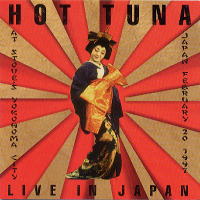
Live in Japan is a live album by Hot Tuna recorded in 1997 in Yokohama, Japan. Originally the band planned to play an electric set as part of their Japanese tour, but the venue in Yokohama was too small and there wasn't any room for an electric setup. The band played acoustic, and afterwards Jack Casady suggested to Jorma Kaukonen that the recording was good enough for a new live album. Michael Falzarano and Kaukonen listened to the tape and decided that Casady was right, and a new album was released. The album was Hot Tuna's last release on Relix Records. In 2004 Eagle Records remastered the album and re-released it with previously unreleased performances of "Parchman Farm", "Follow the Drinking Gourd", "Keep Your Lamps Trimmed & Burning" and "Folsom Prison." Three of the tracks from the initial release were dropped from the remaster: "Hesitation Blues", "Candy Man" and "Keep on Truckin'".

Live at Sweetwater Two is a live Hot Tuna album recorded at the same time as the album, Live at Sweetwater, but contains no tracks from the previous release. The live performances feature Bob Weir of the Grateful Dead, blues-singer Maria Muldaur, and keyboardist Pete Sears. Also included is the previously unreleased studio track "Endless Sleep" from the Pair a Dice Found sessions. In 2004 Eagle Records re-mastered and re-released the album with several added tracks, and without the studio track included.

KROQ-FM is a radio station licensed to Pasadena, California serving the Greater Los Angeles Area. Owned by Entercom, it broadcasts an alternative format, branding itself as The World Famous KROQ.

Like Never Before is the fifty-fifth studio album by American recording artist Merle Haggard. It was released in 2004 on his own label, Hag Records.
"Bottle of Red Wine" is an uptempo blues rock song, written and recorded by the British rock musician Eric Clapton for his eponymous studio album Eric Clapton in 1970 under Polydor Records. The recording was produced by Delaney Bramlett and is of a three-minute and six second duration. Polydor Records released the song as the B-side to the 1970 single release "Blues Power". The song is written in the key of C major, played with the blues scale. Music critic Robert Christgau notes, that the tune does not deserve a "classic status". The title is also included on the 1972 compilation album Eric Clapton at His Best.
















